Unseen Overtime: The new working day during COVID-19

As a nation, we work a lot. A lot more than other countries too. Studies by the International Labor Organization show that Americans typically work around 260 hours more per year than British workers, and a huge 499 hours more than French workers. Our research shows that the pandemic has not helped our habit of overworking either.
One study from 2020 says that the average American worker is expected to work at least an extra 7 hours a week due to the pandemic. With recent numbers indicating 9.7 million people out of work, we wanted to find out how this high-pressure economic environment has caused people to overwork, either paid or unpaid, and what might be the key reasons behind this.
Key statistics:
- 2 in 5 (42%) workers are doing extra hours each week, 27% of them working as much as 5-6 extra hours a week
- 88.5% say they woke up earlier and went to bed later to fit in the extra work demanded of them during the pandemic
- 46% of workers reported increased levels of stress due to working more hours
- 1 in 5 employees working overtime will work an additional 4.5 hours extra each week for free, the equivalent of $432.72 weekly unpaid overtime, $5,626 a year
- 73% of remote-working parents said childcare duties had increased, averaging 3-4 hours extra a day
Extra hours: At least 2 in 5 are working more each week
We asked the key question for the start of this study: were people working more or less hours in the last year due to the pandemic.
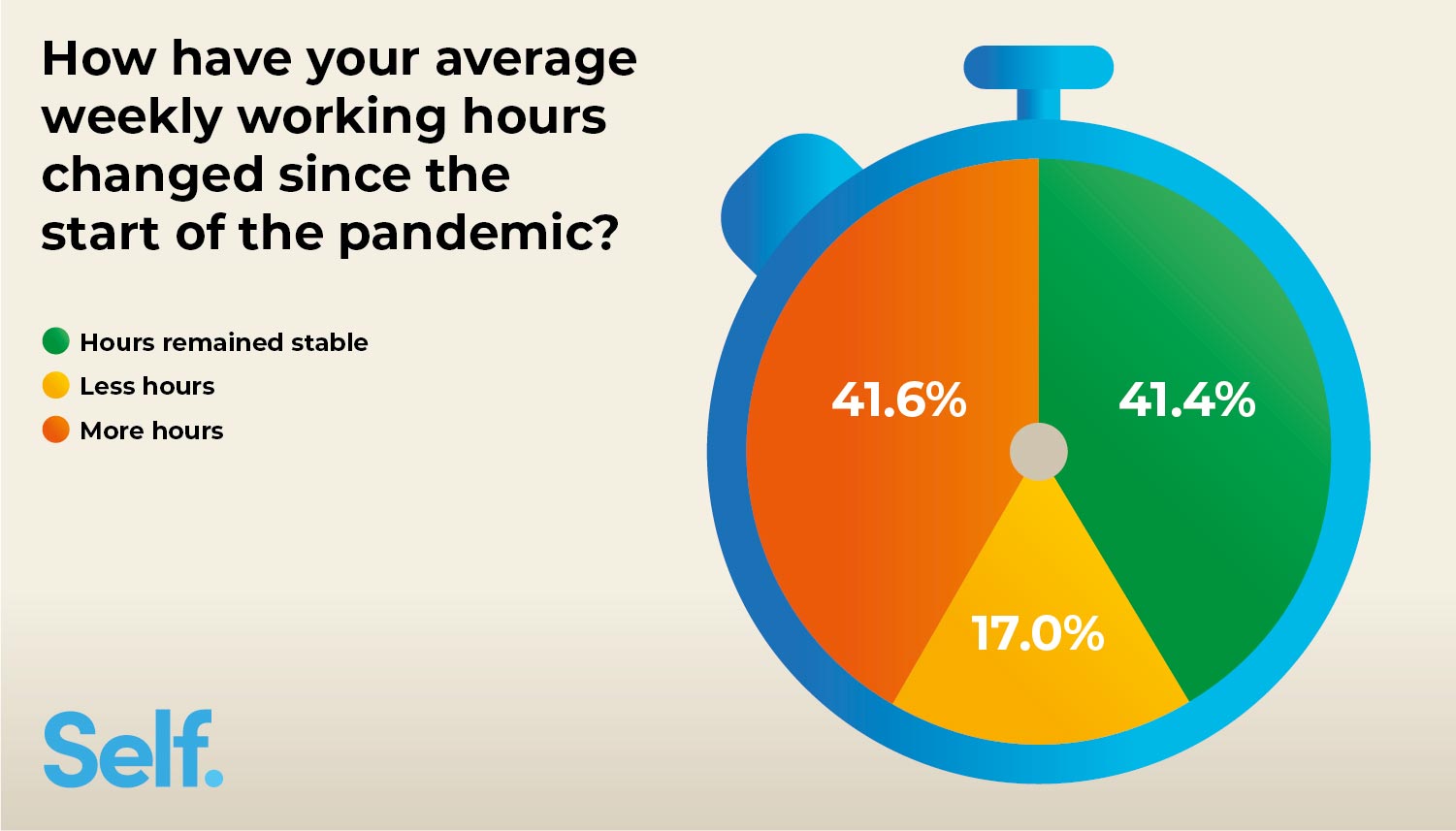
2 in 5 (41.6%) of our sample said that they were working more hours, while another 2 in 5 (41.4%) said their hours had remained the same. Only 17% of our survey said that they were now working less hours.
Based on current employment figures, this would mean an estimated 62.637 million people are working extra hours every week due to the pandemic.
Quarter of those working longer hours are clocking an extra 5-6 hours a week
For those who are working extra hours, we wanted to know roughly how many more hours they were accumulating each week. We asked them to base this on their average working week during the pandemic, so results could very well be higher or lower in other weeks.
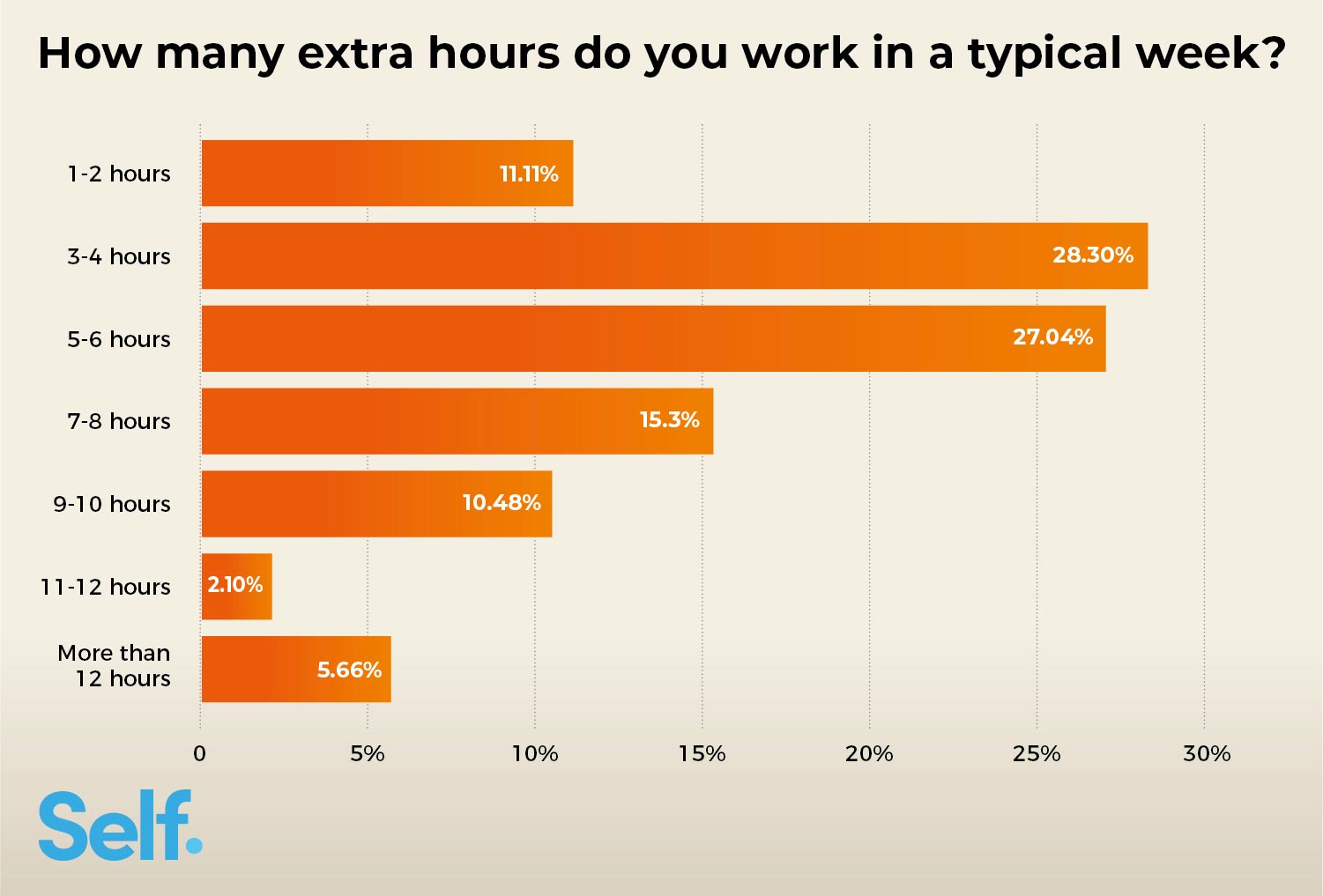
In general, most people work somewhere between 3-6 hours extra per week, so likely around an hour extra each day, similar to the findings from the National Bureau of Economic Research in July 2020.
To put this into perspective for the employed population, 16.94 million people (27%) are working an extra 5-6 hours a week. That’s almost an extra day worked on top of typical hours every week to keep up with pandemic demands. That also means an estimated 3.55 million are working over 12 hours extra every week.
88.5% are waking up early and staying up later to fit in extra work
If most people have to find an extra hour each day, we wanted to know when most found the time to fit in this extra work. The vast majority (88.5%) said they found the time during the week in an attempt to save their weekends.
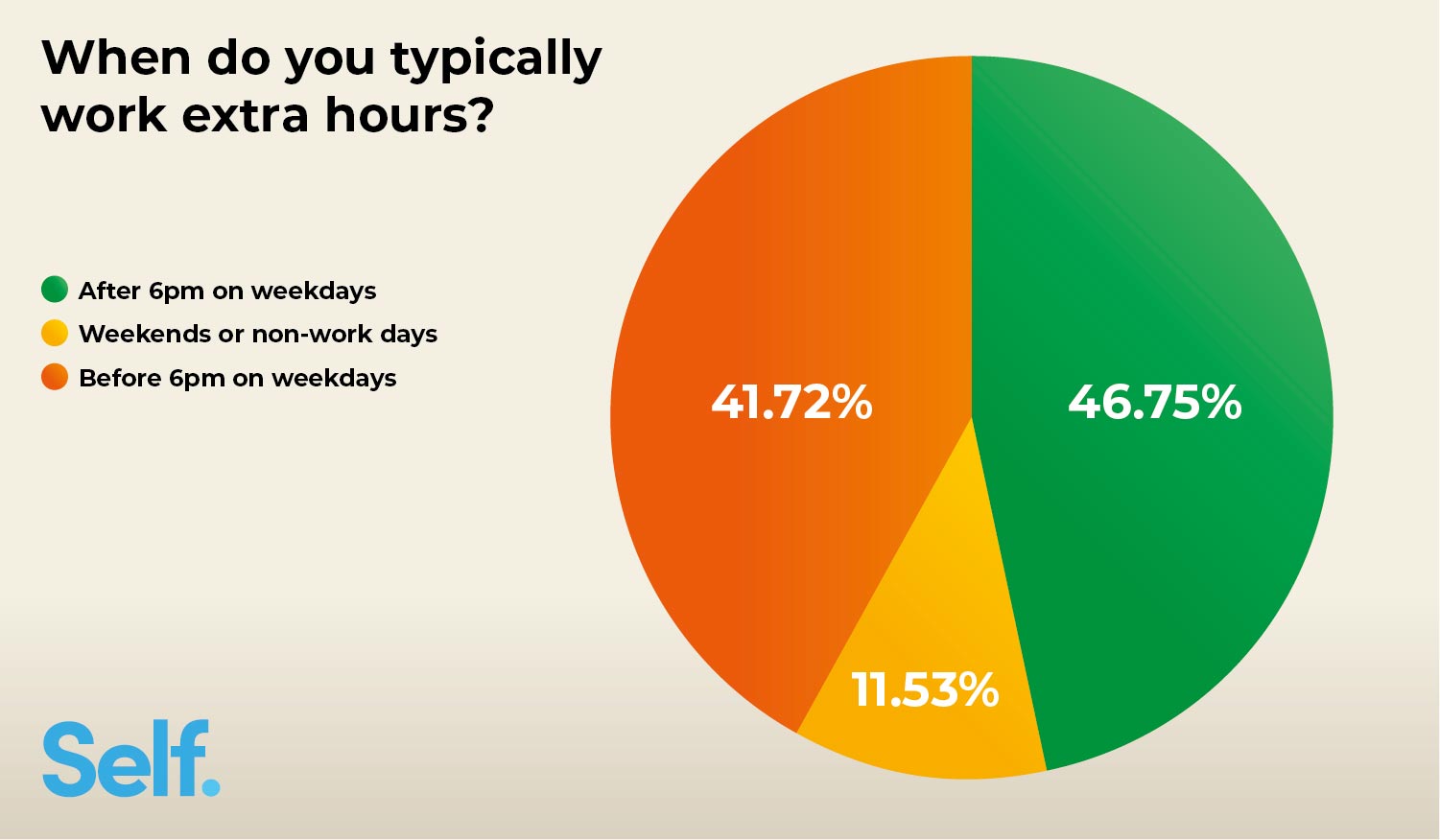
2 in 5 (44%) said work is taking longer when working from home
For some, working from home is not as enjoyable or productive as working from an official workplace. We asked our respondents what the main reason(s) were for them working more hours during this time. The primary reasons were tasks taking longer at home (44%), a passion or love for their job (36%), as well as a push for a pay raise or promotion (35%).
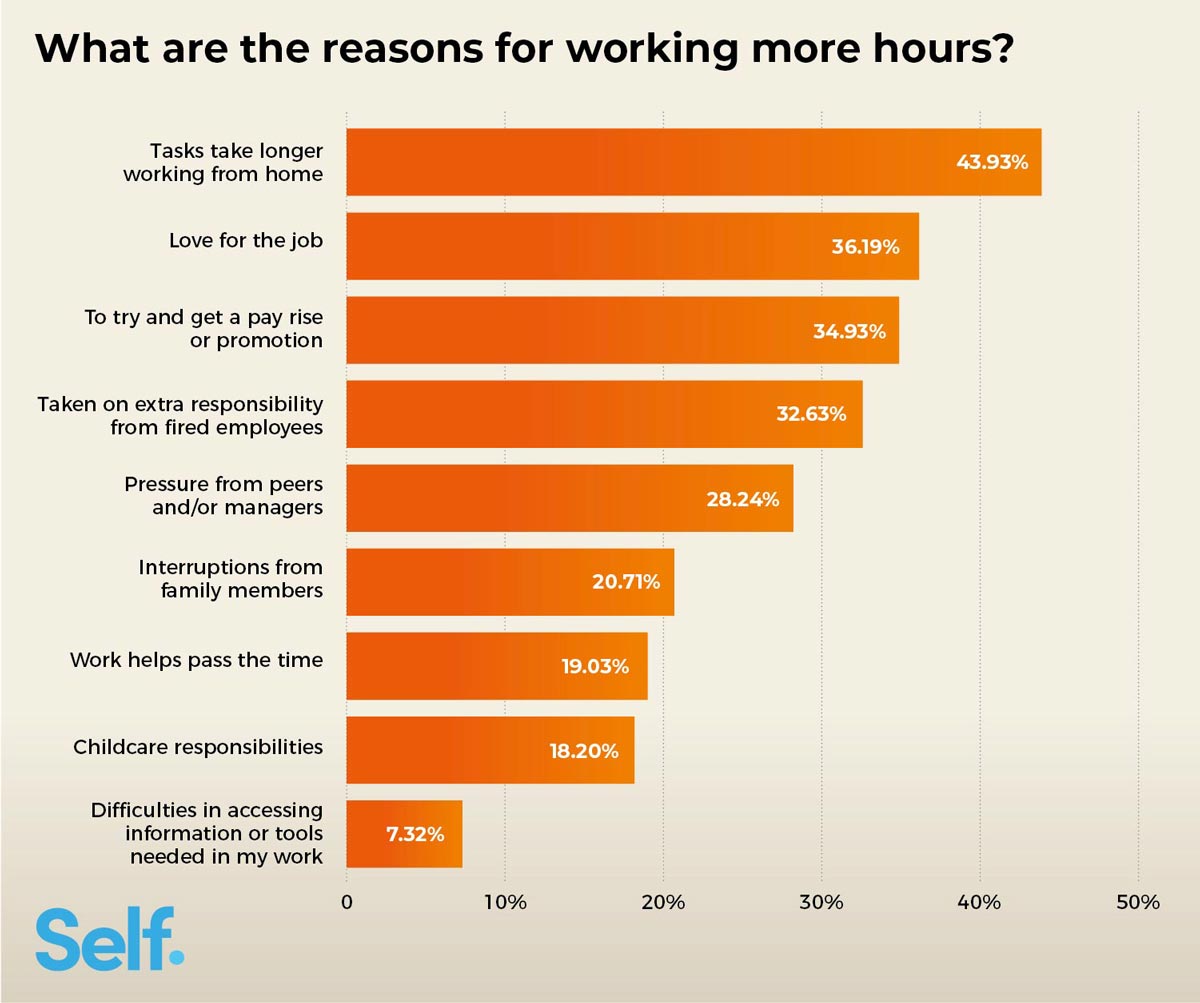
46% have increased stress due to working more hours, 30% suffering anxiety
A March 2021 study by the Department of Defense (DOD) found that work-related stress causes insomnia, mental wellbeing issues, and poor work performance. A lot of our respondents discussed similar findings from their overworking, with 98.9% stating they had faced at least one negative impact of overworking.
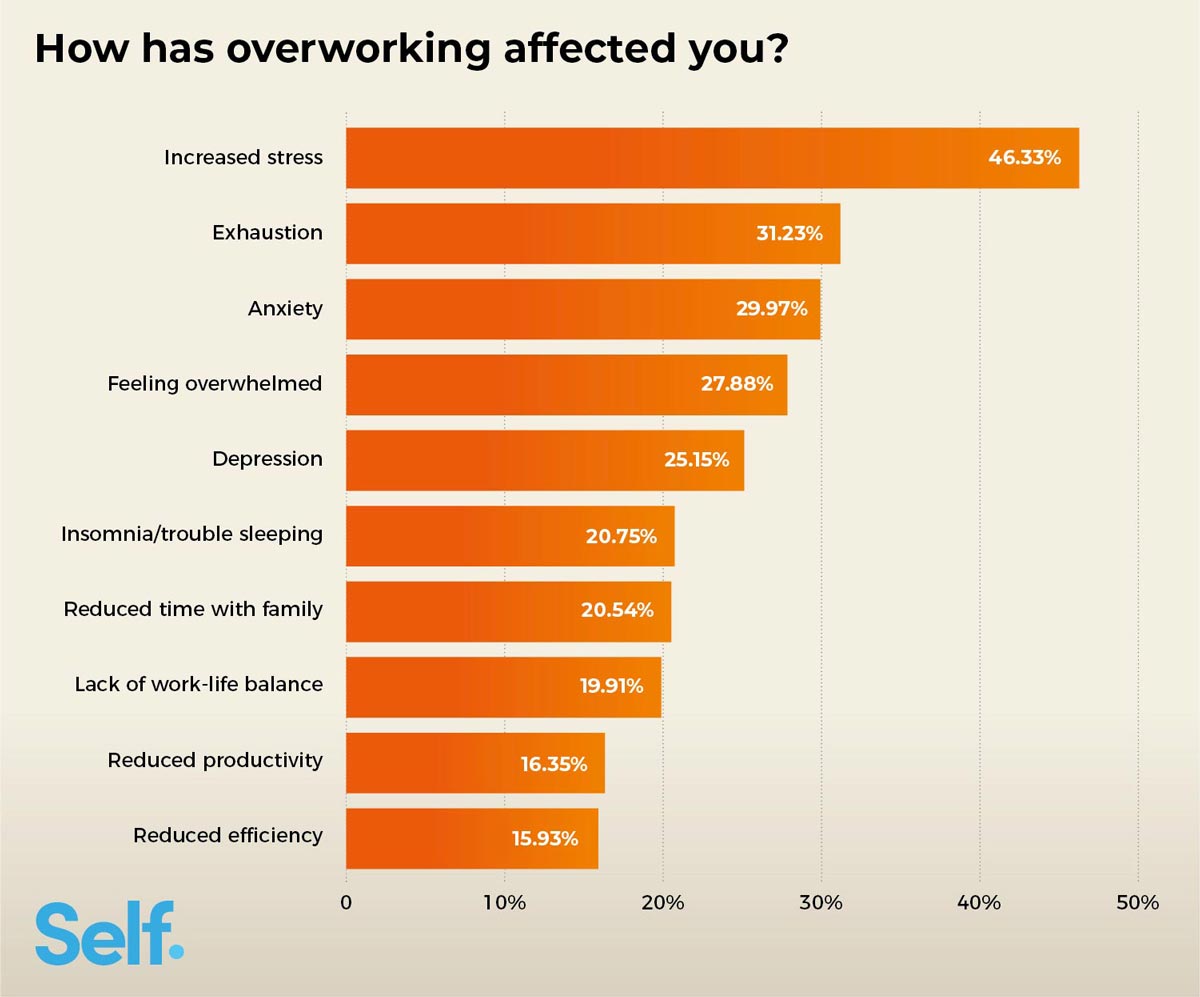
Similar to the DOD’s findings, 21% indicated they had trouble sleeping, and 30% faced anxiety or exhaustion, with the majority (46.3%) stating they had increased stress.
1 in 5 to work overtime for free, losing $5,625.76 a year
When asked if they are going to be paid for their overtime, 20% of this group said they won’t be getting any extra cash for this time. With 80% expecting to be paid for some, or all of their time.
Based on the data supplied by our respondents on their average salaries, which is $50,000 ($1,000 less than the Bureau of Labor Statistics’ estimate), their hours worked (40 hour week), and an average overtime of 4.5hrs/week, we can see that one individual will work the average of $432.72 a month, or $5,625.76 worth of unpaid overtime over a year.
Factoring in official employment figures for 2021, we can see that an estimated 12.53 million of the American workforce will work overtime with no financial compensation. Financially, this will mean an estimated $70.48 billion will be worked for free over a year due to unpaid overtime.
Only 17% said they were working fewer hours
The majority of our sample said they were working more hours (41.6%) or that their hours had remained stable (41.4%), those who had hours reduced were the minority (17%). With this in mind, we still wanted to understand the impact, both financially and physically, reduced hours had caused them during this time.
The majority of this group (22.6%) worked around 3-4 fewer hours each week, with 19% saying they worked 9-10 hours less.
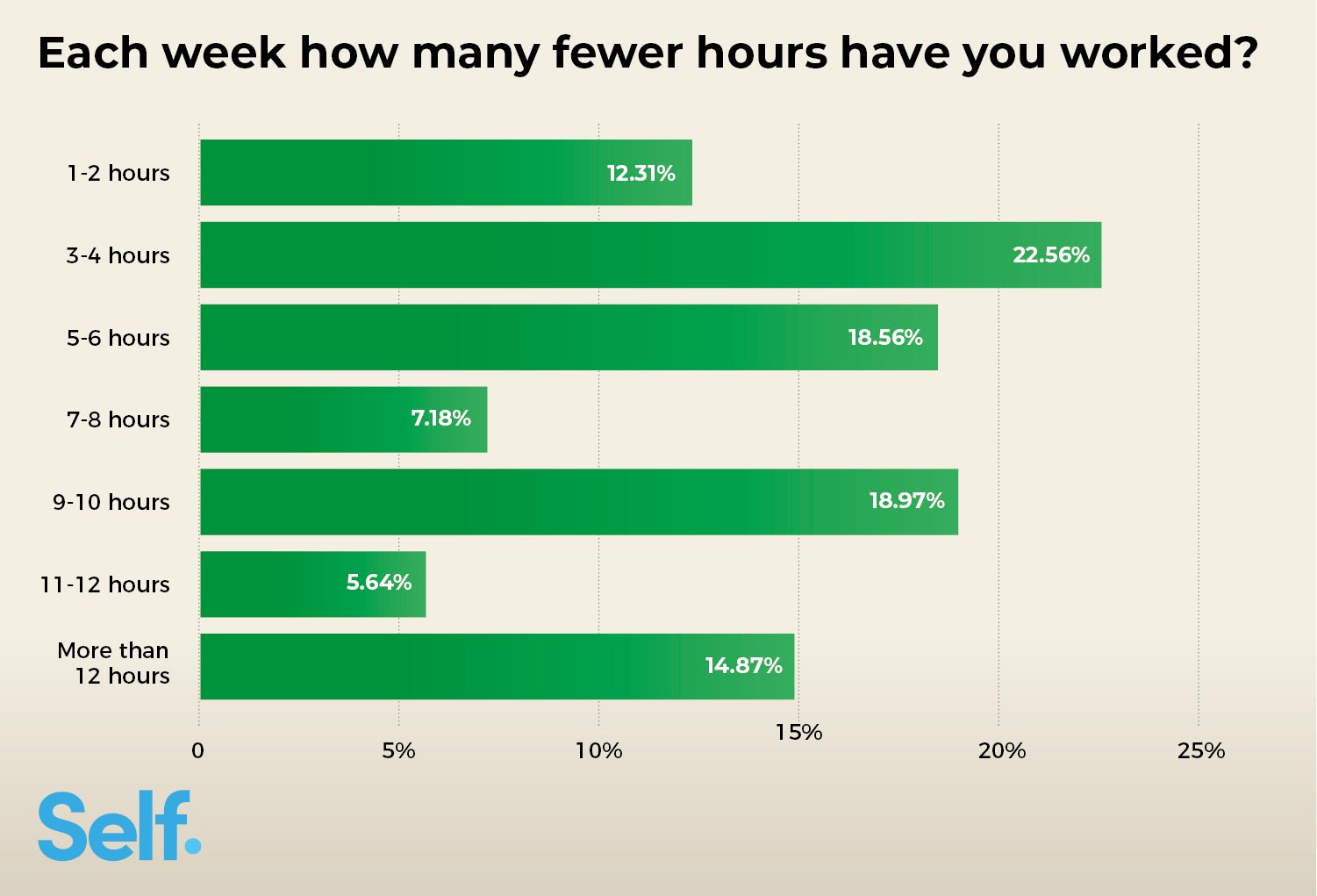
For most (59%) their work is drying up, others feeling more productive!
When asked about their primary reasons for their hours reducing, most (59%) of our respondents said their work had reduced capacity or was simply not available. Other reasons given were:
- Previous working hours not available any more (59%)
- Job role had changed causing me to lose hours (34%)
- Higher productivity had reduced need to work longer hours (26%)
- Family commitments meant I had to reduce work (17%)
- Personal health meant I had to work less (12%)
Fewer hours also causing stress, anxiety, and insomnia
Of those who had their working hours reduced, 75% said they had experienced an impact on their wellbeing (either positive or negative) due to reduced hours.
The most common impacts people reported on their lives were increased stress (38%) and anxiety (30%), but respondents also acknowledged they did have increased time with their family (22%).
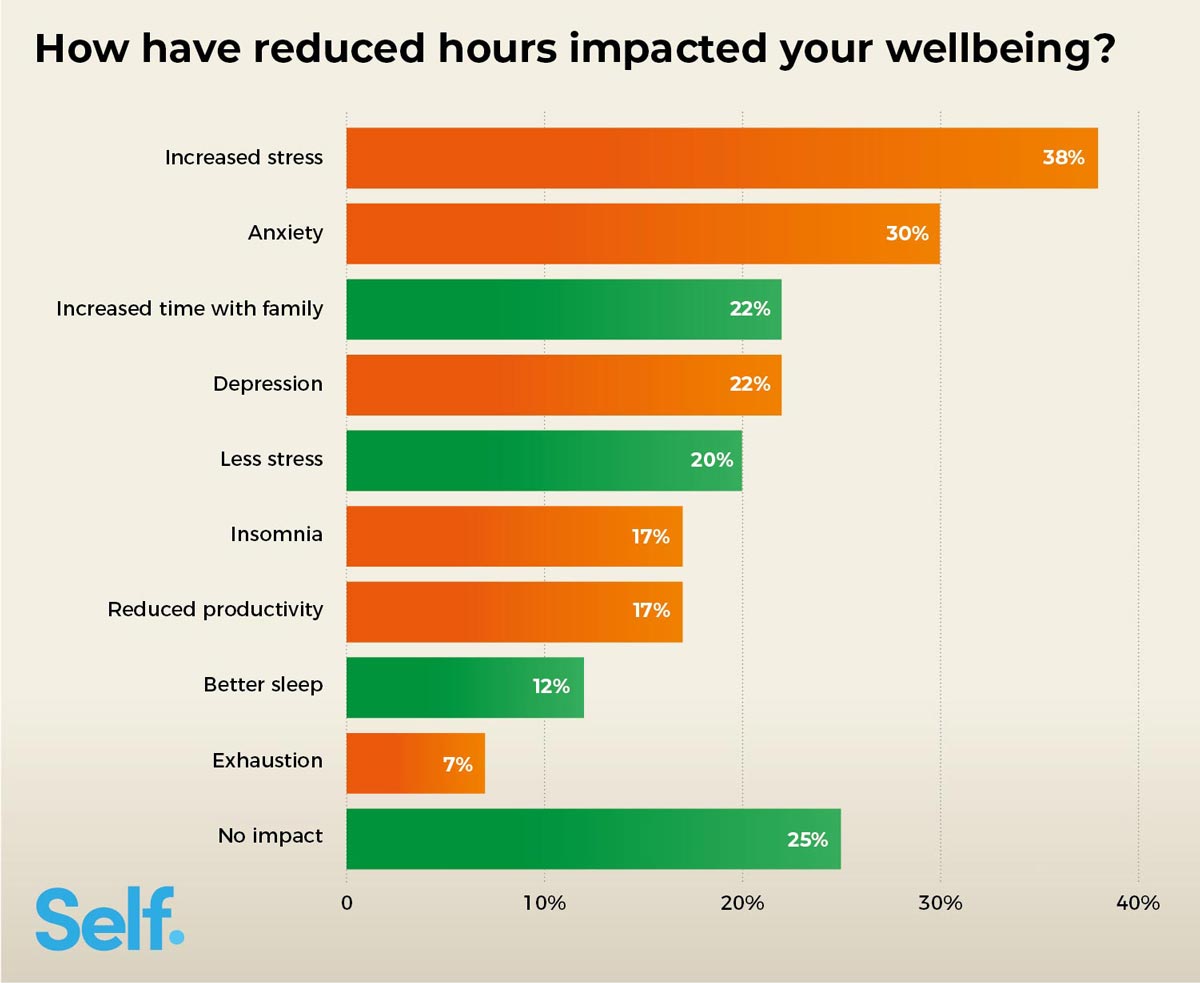
1 in 3 (36%) are saving 7.5 hours on commuting a week
The commute may be a thing of the past for many who now work remotely, but what does that look like for most? From our respondents, 36% said they are saving 1-2 hours a day, and another third (33%) said they’re saving less than an hour. A larger 16% are saving between 2 and 3 hours, while 9% said they previously did not have any commute.
Across an entire year, this would mean that 36% are saving an average of just under 16 days (15.75) a year on commuting, based on a 262 day working year (minus 10 days vacation).
WFH has caused 73% of parents’ child care duties to rocket
Of our respondents, just over half (52.3%) had dependent children that may affect their remote working situation. Of this group, 73% said that their child care duties had increased ‘slightly’ or ‘significantly’ since working from home. 22% said that it had remained roughly the same, with only 5% saying it had decreased.
In terms of how this affects their working days, 54% said it had added between 3-6 hours to their childcare duties each day when compared to before the pandemic. The full hourly breakdown is as follows:
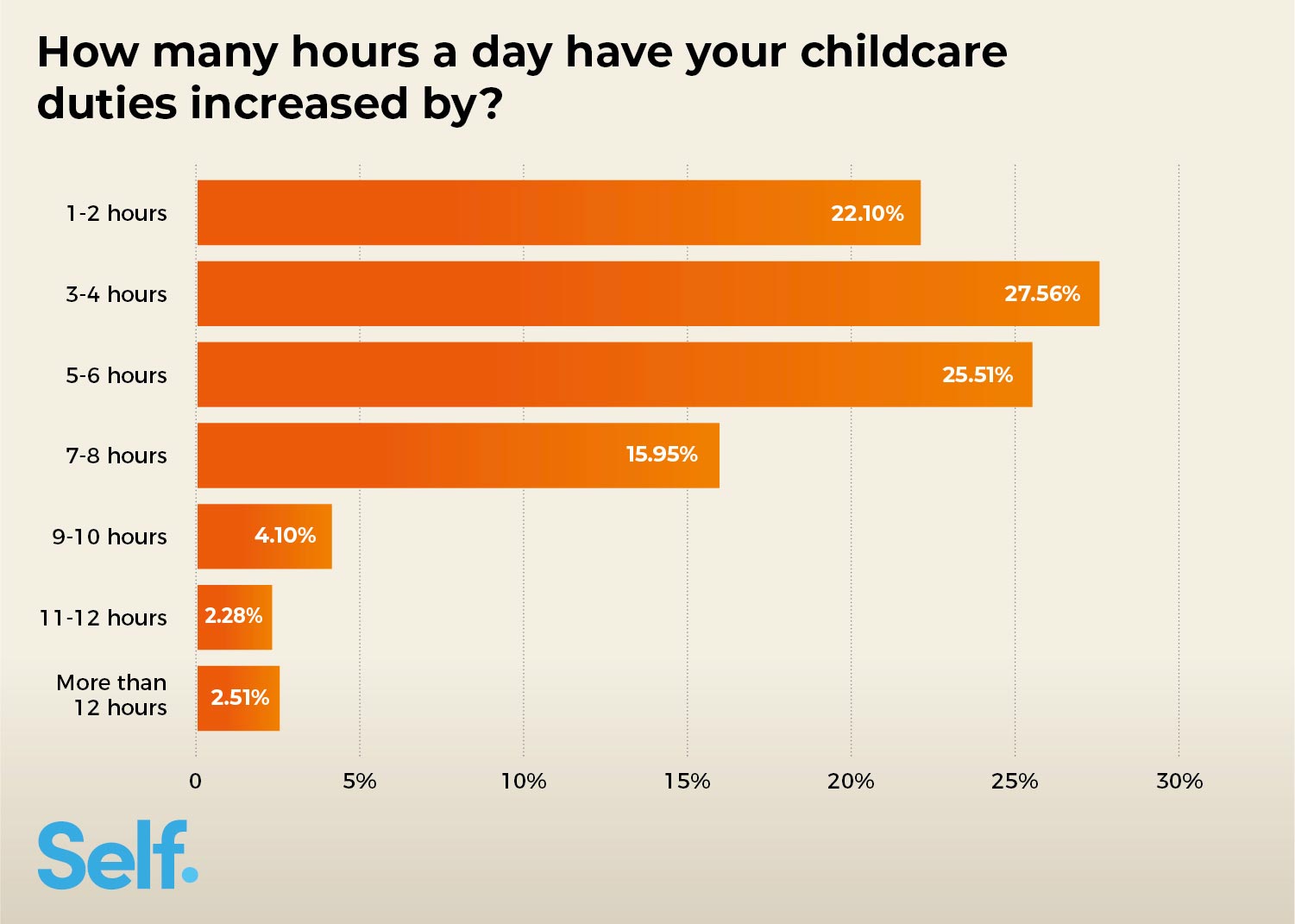
Methodology
This representative survey was conducted online from March 16th - 23rd and polled 1,147 Americans from a variety of financial backgrounds, using Amazon’s Mechanical Turk survey platform.
All respondents indicated they worked at least one (1) day a week remotely from home. 57.5% indicated they worked full-time remotely when the survey was taken.
The respondents stated they worked in a range of company sizes, with most in medium-sized businesses:
| Large Business - More than 500 employees | 33.65% |
| Medium Business - Between 51 - 500 employees | 43.24% |
| Small business 2-50 employees | 23.10% |
In terms of gender, 54.9% of our respondents were male, 43.9% were female, with 1.2% choosing not to say or identifying as ‘Non-binary’ or ‘Agender’.
Imagery and attribution
All images from this report may be used and republished with attribution to Self Financial, and hyperlink back to this page. You can access high-res graphics for download in this Google Drive folder: https://drive.google.com/drive/folders/1gluOD9fXRlz5UX5RIRxD4MDbYlrKL6Ek?usp=sharing





